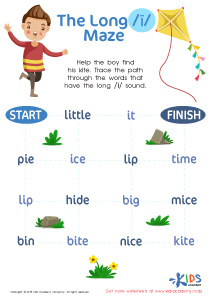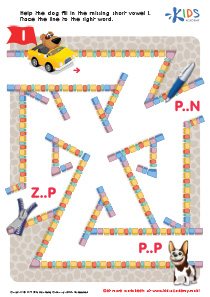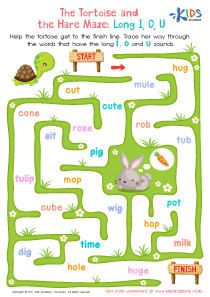Vowel Recognition Extra Challenge Short Vowels Worksheets for Ages 5-7
4 filtered results
-
From - To
Introducing our "Vowel Recognition Extra Challenge Short Vowels Worksheets for Ages 5-7", specifically designed to strengthen early reading skills! These engaging and fun-filled worksheets help young learners identify and pronounce short vowel sounds through a variety of challenging activities. Perfect for reinforcing phonics lessons, each worksheet provides children with an opportunity to enhance their vocabulary, spelling, and word recognition abilities. Ideal for both classroom use and at-home practice, these worksheets are an excellent resource for educators and parents aiming to boost their children's early literacy development. Explore our collection today and watch your child's reading confidence soar!
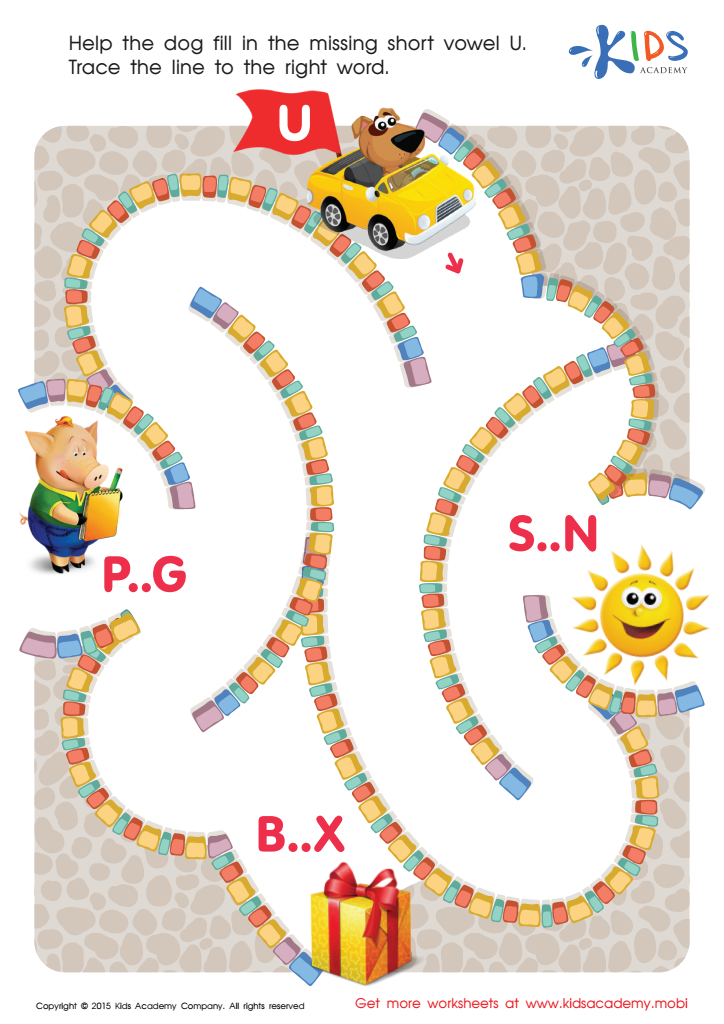

Short Vowel Sound U Worksheet
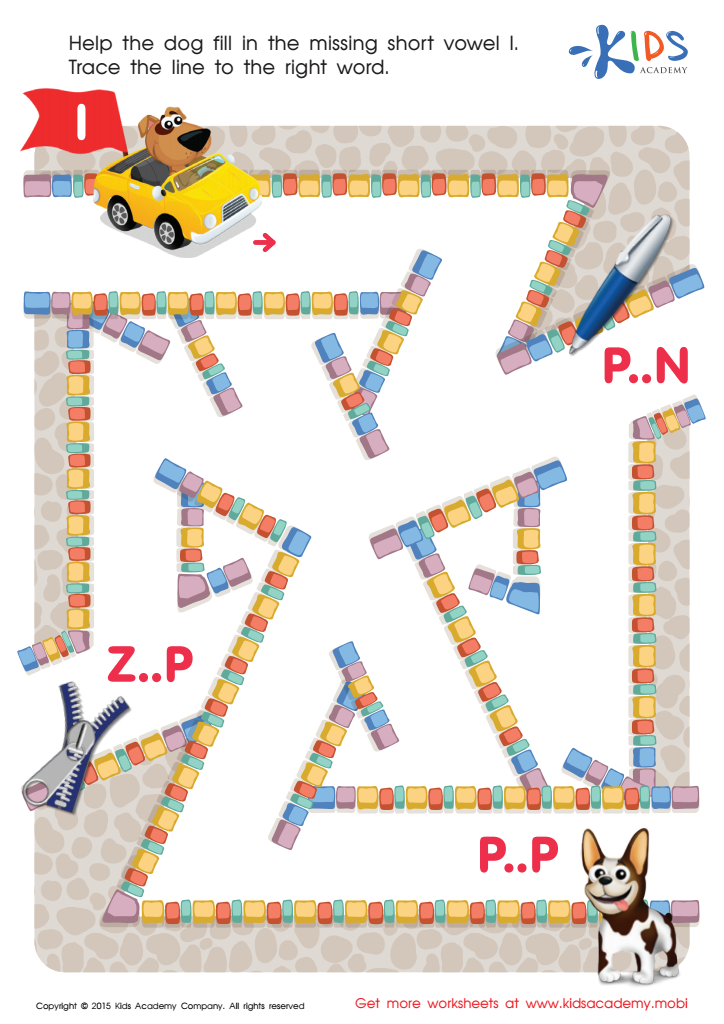

Short Vowel Sound I Worksheet
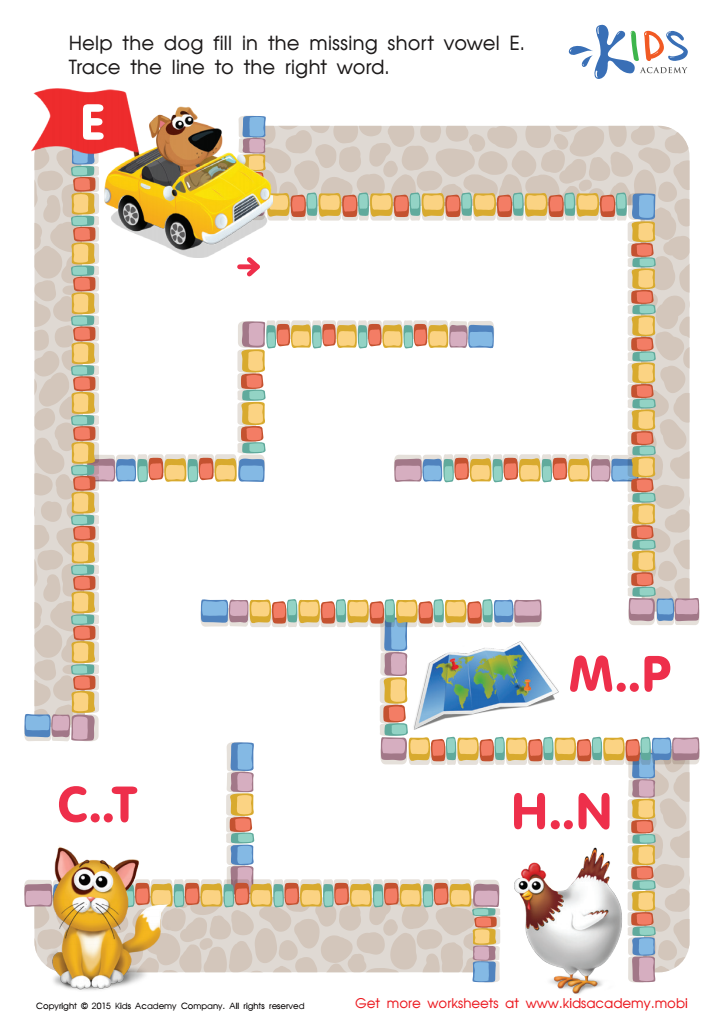

Short Vowel Sound E Worksheet
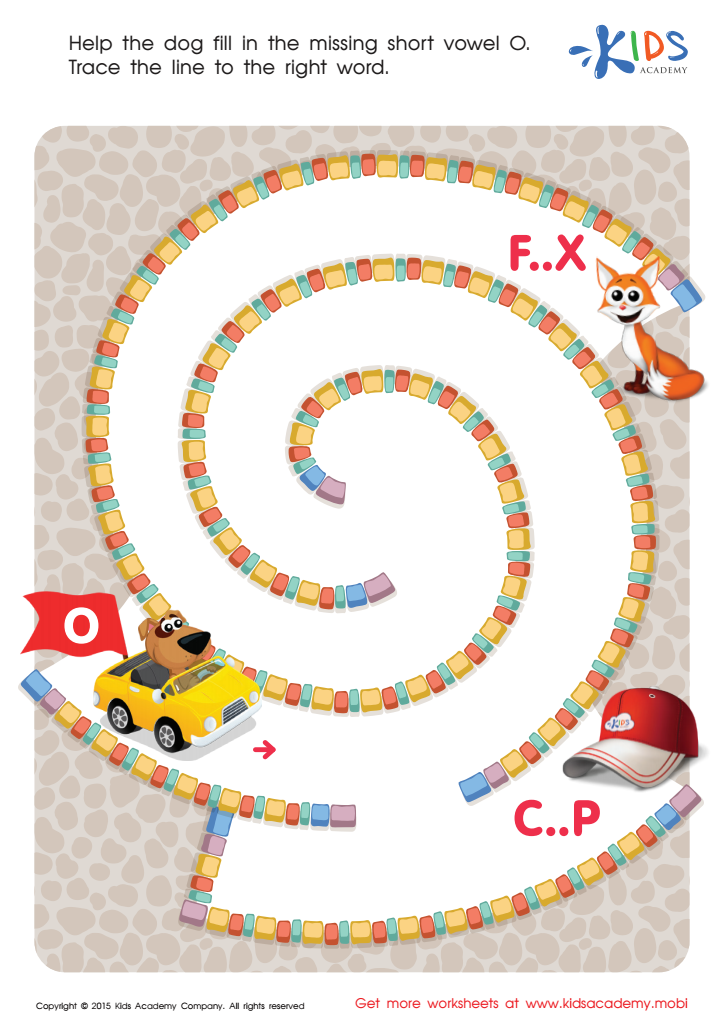

Short Vowel Sound O Worksheet
Vowel recognition is a foundational skill in early literacy, and prioritizing exercises like the "Vowel Recognition Extra Challenge" for 5- to 7-year-olds can significantly enhance reading and writing abilities. Short vowels, specifically, are often difficult for young learners to distinguish and master because they have subtle differences that can easily be confused. Focusing on these skills helps ensure that children can accurately decode and encode words, which are essential operations for effective reading and spelling.
Parents and teachers should care about this because early competency in vowel recognition directly impacts a child’s reading fluency and comprehension. When young learners can swiftly and correctly identify short vowels, they are better positioned to advance their phonemic awareness, thereby making reading a less daunting task and a more enjoyable experience. Proficiency in recognizing short vowels also lays the groundwork for understanding more complex phonetic rules and relationships, as well as expanding vocabulary.
Moreover, engaging children in targeted vowel recognition activities fosters a sense of achievement and confidence, which can have positive emotional and educational ripple effects. Fostering these skills between the ages of 5 and 7 makes for a smoother transition to more challenging literacy tasks in later school years, contributing to long-term academic success.
 Assign to My Students
Assign to My Students




